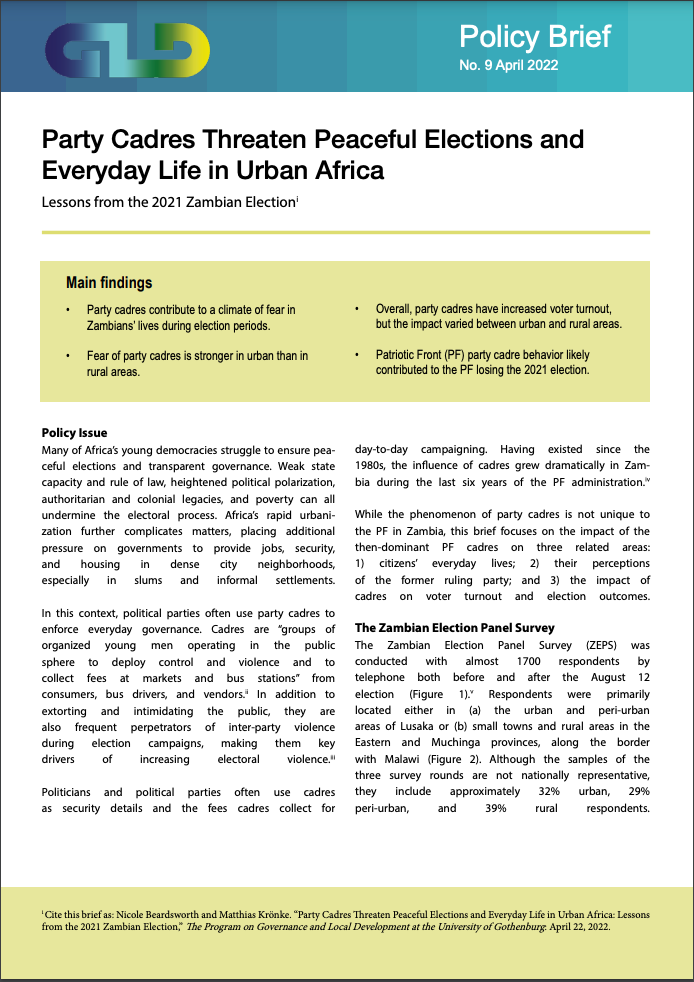Dear friends of This Week in Africa,
It has been nearly a year since my family and I sold our Prius, put a few invaluable items in storage, and moved to Sweden. It has taken a while, but we are finally settling into our cozy new life. Friends and colleagues at The Nordic Africa Institute, Forum for Africa Studies, Uppsala University’s Department of Government, and the Swedish Collegium for Advanced Study have welcomed me with open arms.
I am especially lucky to be working with the Governance and Local Development Institute (GLD), which has proven to be the perfect intellectual home.
Here are a few of the exciting initiatives from the past year, and a glimpse into what we have in store for 2023.
1. GLD Policy Briefs
We published several briefs that outline the policy implications of our research. These include “Where mosques can help women solve community problems” and “How civilians can make rebels more responsive.” We also wrote briefs on policy roundtables about “Local governance in Afghanistan: Six months after the Taliban takeover” and “The future of local governance and development in Tunisia.”


One of my favorite briefs was Nicole Beardsworth and Matthias Krönke’s “Party Cadres Threaten Peaceful Elections and Everyday Life in Urban Africa,” which draws on a panel survey before and after Zambia’s 2021 election. The study found that party cadres, or groups of young people who operate in the public sphere and use violence and coercion to collect fees at markets and bus stations, contributed to a climate of fear in Zambians’ lives during the electoral period.
2. Climate Change in the MENA
In partnership with Alternative Policy Solutions (APS) at the American University of Cairo, GLD hosted three roundtables about climate change in the Middle East and North Africa. We summarized the discussions in the following policy briefs:
· Agriculture and local adaptation to climate change in the MENA
· Confronting global and regional inequalities to achieve equity and climate justice
· The world’s most water stressed region requires cooperation and diplomacy

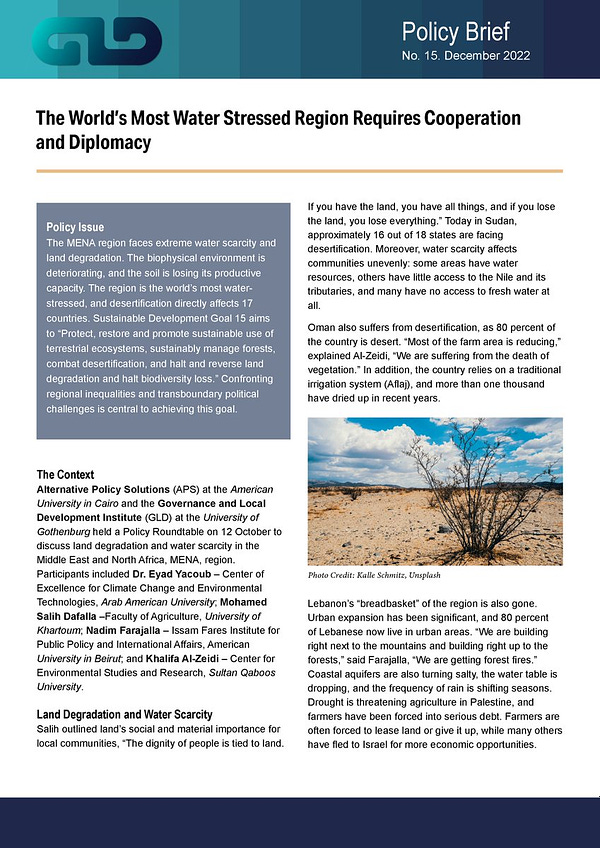


These briefs center local context, regional and global inequalities, and politics in the fight against climate change.
3. GLD Annual Conference
The GLD Annual Conference is the best – and most fun – conference I have ever attended. This year’s conference “Giving and Taking: Studies on Extraction and Participation in Local Development” took place in May in Brastad, Sweden.

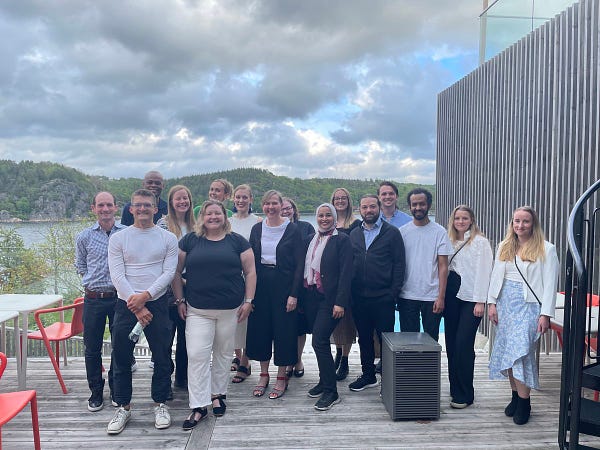
We heard many great research presentations, as well as discussed how our scholarship can help advance social welfare across the globe. We focused on improving citizen participation, building social contracts, holding leaders accountable, and engaging with policymakers and local communities.

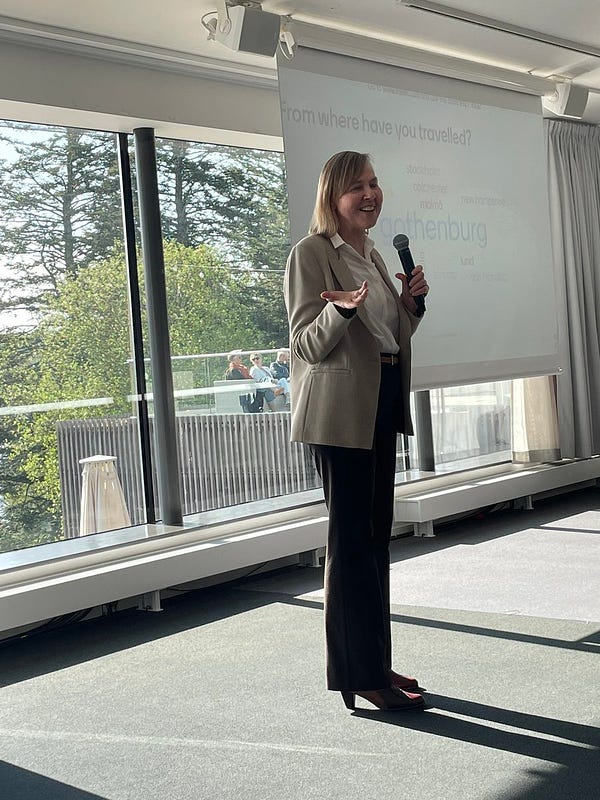
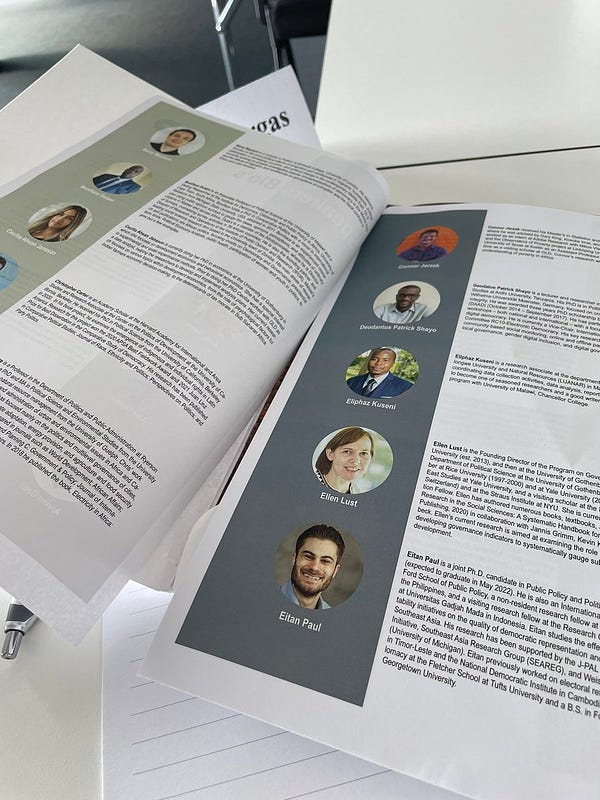
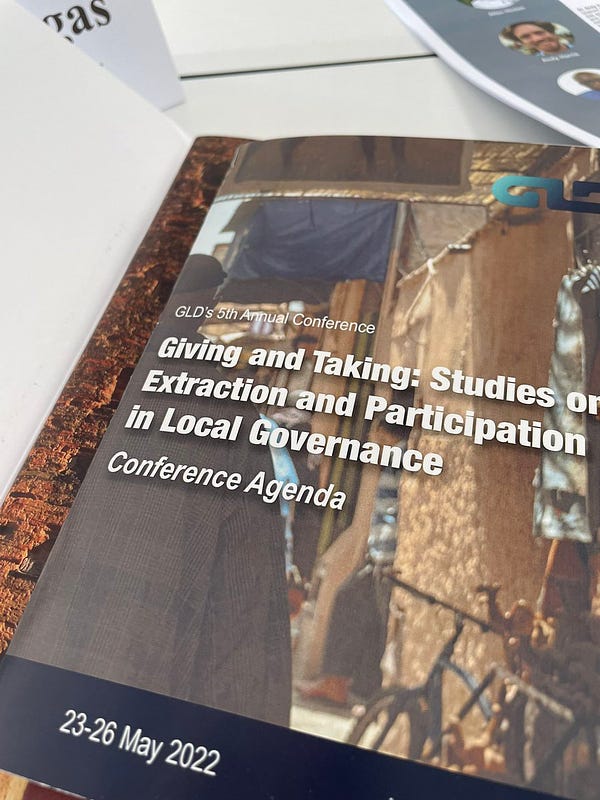
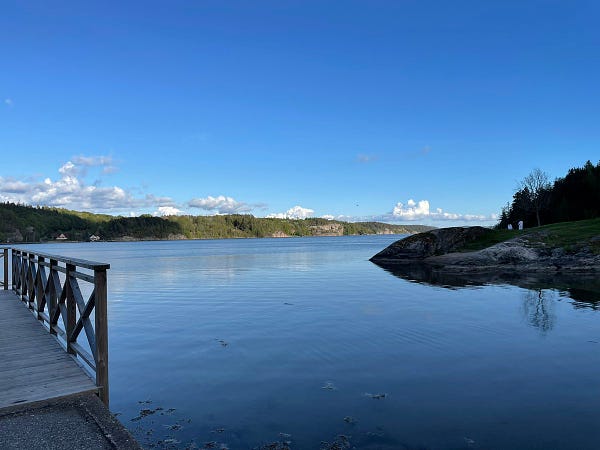
We summarize the key findings in “Bridging the research-policy divide to promote local development.” We hope to see many of you at future GLD conferences!

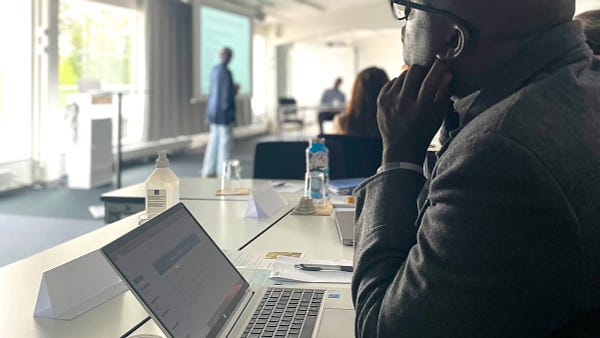
4. GLD Working Paper Series
I’ve really enjoyed reading new research on local governance and development. We’ve published several excellent studies as part of our Working Paper Series. Salih Yasun’s “The Municipal Finances and Challenges of Municipal Taxation in Post-Revolutionary Tunisia” examines the factors that explain the deficiencies in local taxation income in developing countries undertaking decentralization reforms.

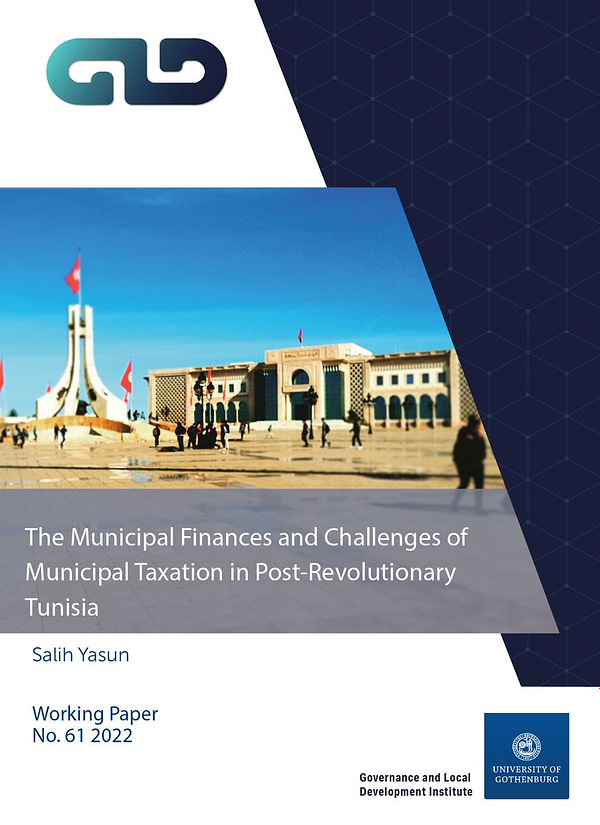
Rachael McLellan draws on evidence from Tanzania in her paper “Local Control: How Opposition Support Constrains Autocrats.”


Paige Bollen provides evidence from a casual contact survey experiment in Accra, Ghana in her paper “The (Spatial) Ties that Bind: Frequent Casual Contact, the Shadow of the Future, and Prosociality Across Ethnic Divisions.”

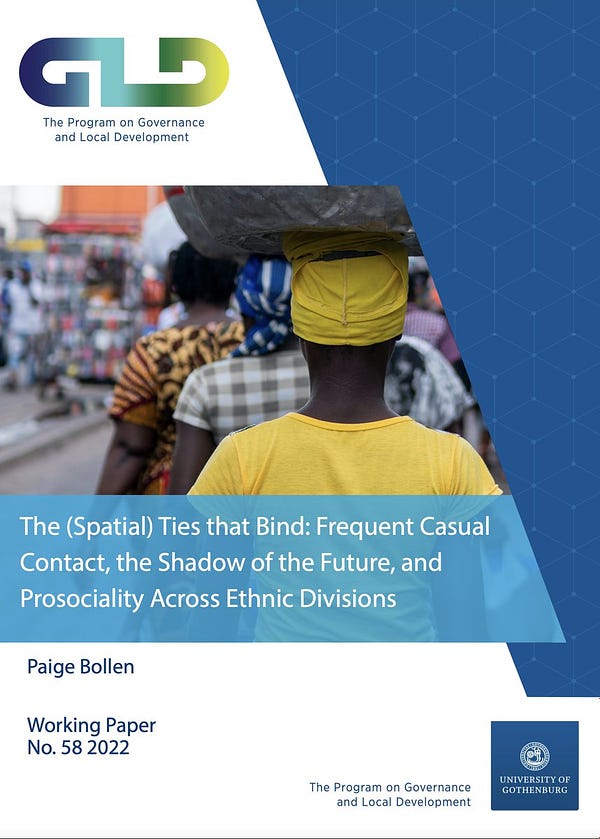
Kristen Kao and Ellen Lust examine executing surveys in their paper “Do List Experiments Run as Expected? Examining Implementation Failure in Kenya, Zambia, and Malawi.” Finally, George Bob-Milliar and I interrogate election campaigns in “The social embeddedness of elections: Ghana’s 2016 and 2020 campaigns.”

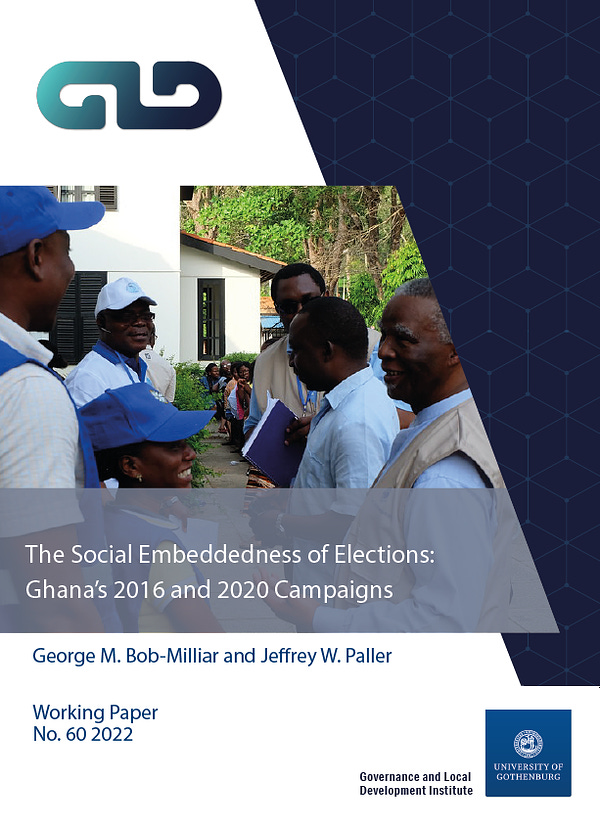
We are always seeking new contributions to the study of local governance and development. See our open call for papers!
5. Political transformation in African cities
I am learning so much working with Kristian Hoelscher (PI), Taibat Lawanson, Sean Fox, Melanie Phillips, and Nicholas Dorward as part of the Political Transformation in African Cities (PACE) project funded by the Research Council of Norway. I returned to Ghana to study how residents claim the city and the pathways to sustainable governance in African neighborhoods. We are comparing low-income, middle-income, and high-income neighborhoods in Accra and Lagos to better understand state-society relations. Our team is also building the African Cities Dataset to provide useful data for the comparison of African cities. We have many papers in progress. To get a sneak peak, check out Nicholas Dorward and Sean Fox’s recent article in Political Geography “Population pressure, political institutions, and protests: A multilevel analysis of protest events in African cities.”

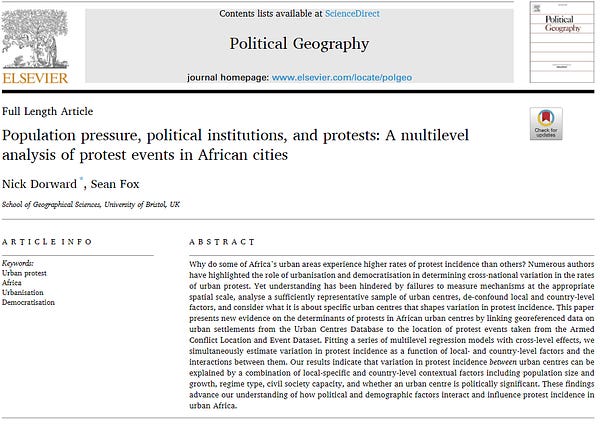
6. CFP: Special issue on Political Change in African Cities
As part of the PACE project, Kristian Hoelscher, Taibat Lawanson, and I are editing a special issue on “Political Change in African Cities: Mobilization, Participation, and State-Society Relations.” See our CFP. The issue will assess how urban growth shapes political change, and identify the conditions in African cities that affect broader socio-political transformation. It takes a place-based approach and theorizes how the underlying structural, historical, and spatial contexts associated with urbanization condition the nature, sequencing and dynamics of political change. If you are interested in contributing to the Special Issue, please submit an abstract to Jeffrey Paller (jeffrey.paller@gu.se) by March 31, 2023. We then aim to have a remote workshop in early Fall 2023, and submit full papers to a leading comparative politics or African politics journal by November 30, 2023.
7. Urban Africa Book Series
Jennifer Robinson and I are editing the new UCL Press and International Africa Institute Urban Africa Book Series. We welcome proposals that provide critical, in-depth analysis of key contemporary issues affecting urban environments across the continent. We hope to publish books by emerging and leading scholars in African urban studies, and will do so Open Access. We have a remarkable group of editorial board members, and have some great titles on the way. Reach out with any questions—and submit proposals! Check out the call here. To request the formal proposal submission form, please write to Stephanie Kitchen, Managing Editor, International African Institute at sk111@soas.ac.uk.
8. Global urban politics workshops
One of the most exciting fields of study in the social sciences is global urban politics. The field includes scholars working at the intersection of comparative politics, urban planning, and sociology. A few workshops this year highlighted emerging scholarship in the field. At APSA, the Comparative Urban Related Group hosted the short course “Political Mobilization in 21st Century Cities: Resistance, Reform, Renewal.” Stay tuned for information regarding next year’s APSA short course, which Emily Rains is organizing.

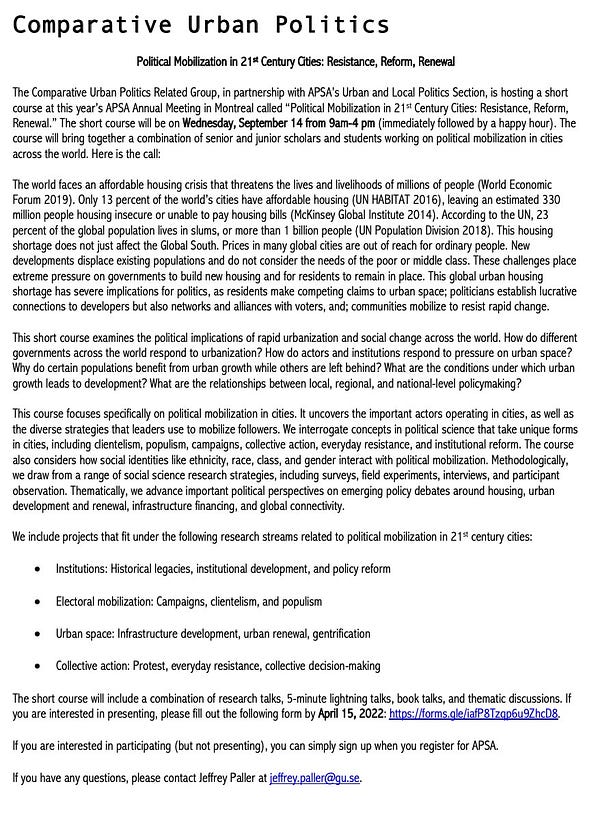
We also launched the Urban Politics in the Global South remote workshop, which brings together scholars and practitioners working on comparative urban politics and development. It combined a plenary panel, paper discussions, and lightning talks. Our steering committee includes Adam Auerbach, Veronica Herrera, Tanu Kumar, Eleonora Pasotti, Alison Post, and myself. Adam and Veronica will be co-organizing next year’s fall workshop, so reach out to them if you have any questions.

9. The Dignity Initiative
I’ve enjoyed learning more about ID Insight’s Dignity Initiative, which aims to uphold people’s dignity in global development. Director Tom Wein is enthusiastically leading the charge and publishing excellent papers and reports on operationalizing dignity in humanitarian aid, dignity and cash, measuring ‘felt respect’, and cultures of dignity. I chaired the panel “Bureaucracy for humans: how states can see the whole person” at this year’s Dignity Symposium, which included excellent contributions from Ashu Handa, Jennifer Brick Murtazashvili, Hitesh Kukreja, and Evan Lieberman. Check out all that the team is up to with the Dignity Report 2022. I look forward to getting more involved in 2023!

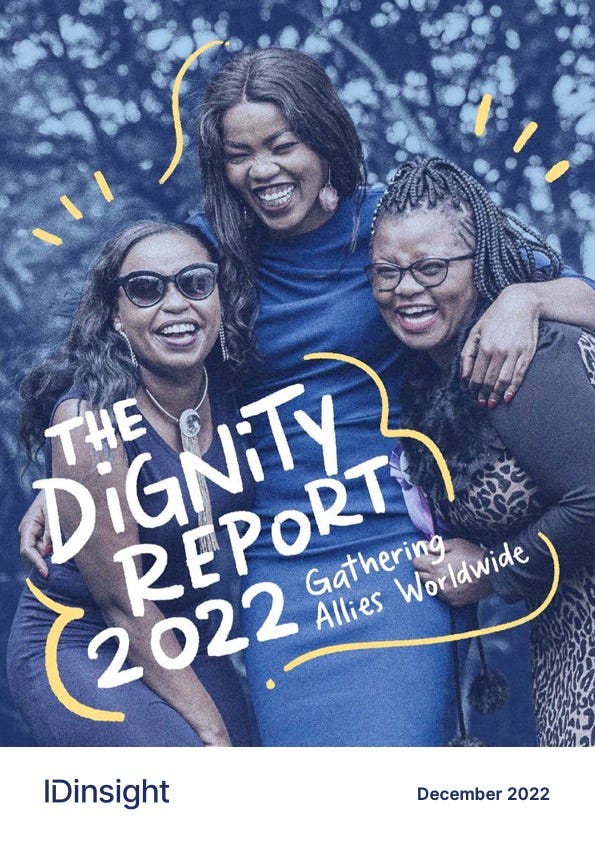
10. Political Change and Local Governance in Emerging Cities
Good news! The Swedish Research Council funded our project Political Change and Local Governance in Emerging Cities. I am very excited to work with Ellen Lust, Alison Post, George Bob-Milliar, and Intissar Kherigi over the next four years.


Here is a brief overview of the project:
Megacities draw attention as the world rapidly urbanizes, but most people live in smaller urban centers. Within these cities, there are sites of intense conflict, but also examples of successful governance and equitable development. What explains these differences? Emerging Cities develops a collaborative research environment to explain four outcomes: inclusive decision-making, avenues of urban claim-making, peaceful co-existence between host populations and migrants, and equitable development. The overarching project goals are to implement the Local Governance Process Indicators (LGPI) in three secondary cities in Brazil, Ghana, and Tunisia; develop theoretical insights into governance and development; and disseminate findings to scholars, policymakers, and practitioners.
Somewhere alongside all of this, the Swedish Collegium has given me the space to work on my book manuscript The contentious politics of African urbanization. What fun it has been. Thanks to all of my partners and collaborators. Oh, and my partner and I welcomed another baby girl to the world on December 24. I will be taking some time off to be with her—the joys of living in a country that takes parental leave seriously. To a very happy 2023!!
Jeff




